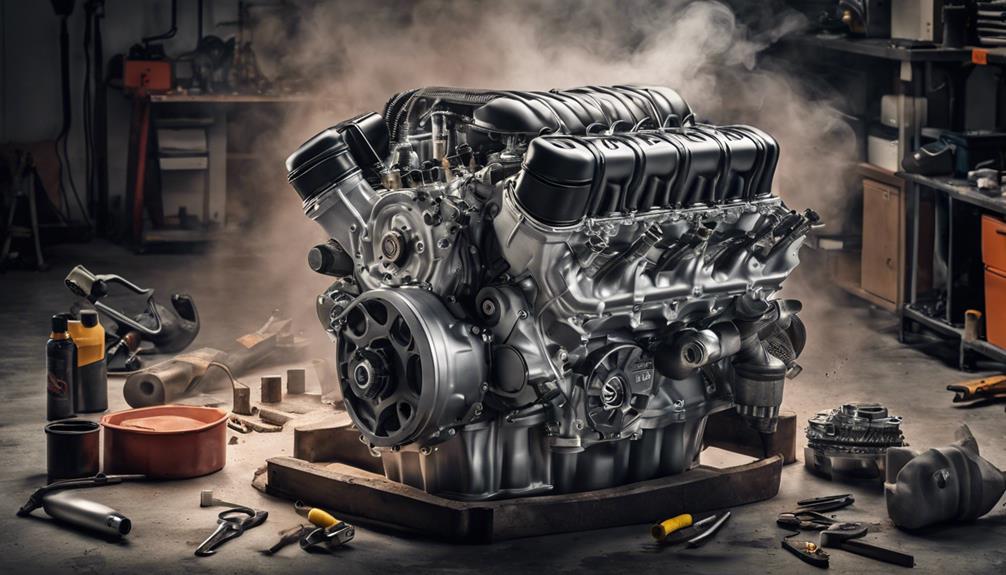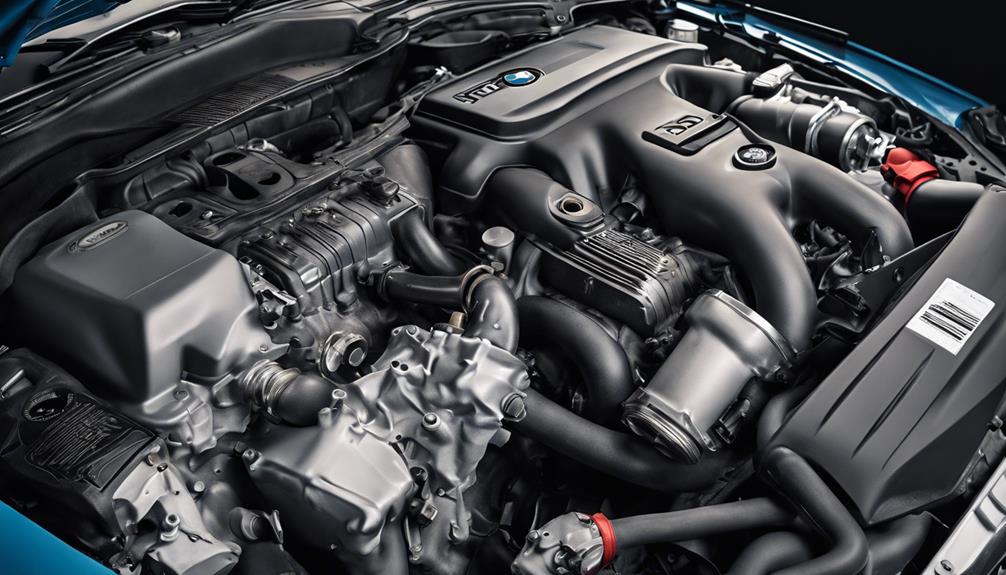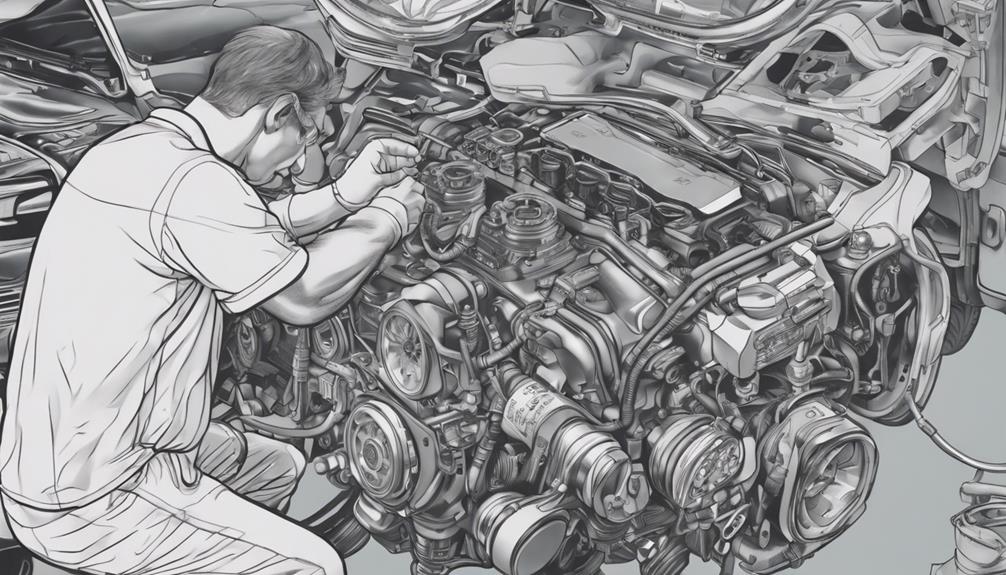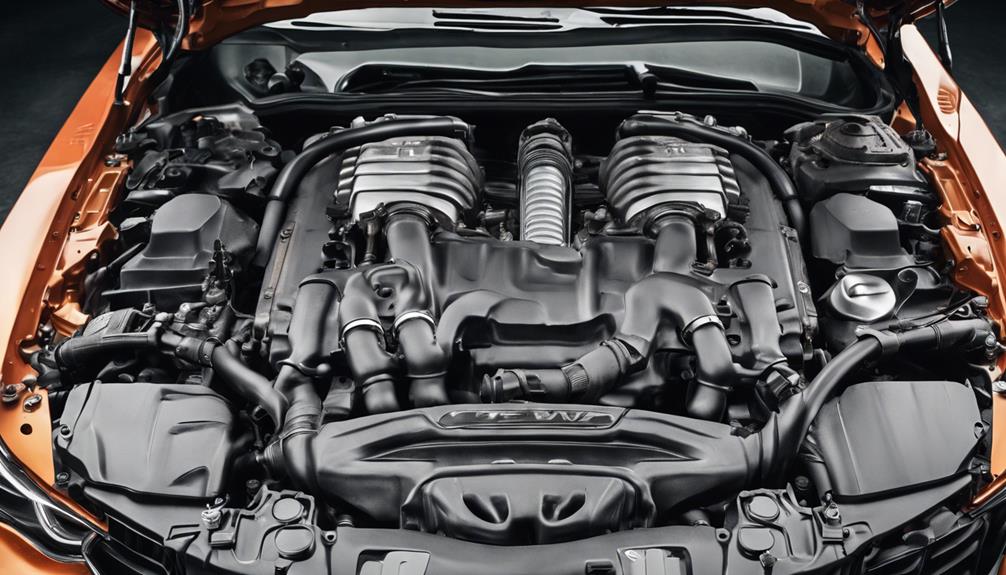If you're considering a BMW M4, be aware of potential oil leaks from valve covers, gaskets, oil pans, and turbocharger inlets, as well as sensor failures and engine performance issues. Specifically, watch out for crank hub problems, O2 sensor malfunctions, and misfires that can impact your driving experience. Regular maintenance is key to catching these issues early and preventing costly repairs. Take note of maintenance recommendations to keep your BMW M4 running smoothly. Learn more about addressing common BMW M4 problems by exploring further.
Key Takeaways
- Gasket leaks in valve cover, oil pan, and oil filter housing are common.
- Turbocharger inlet seal issues lead to reduced power and increased oil consumption.
- Engine performance problems like crank hub failures and misfires can occur.
- O2 sensor malfunctions affect fuel economy and emissions, triggering the check engine light.
- Regular maintenance and inspections are essential for early issue detection and prevention.
Crank Hub Issues
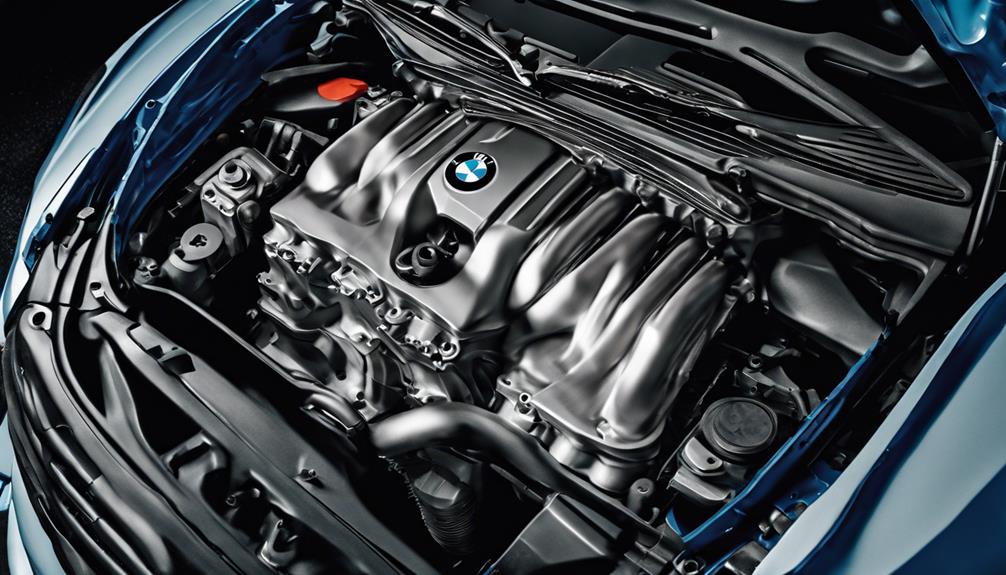
If you own a BMW M4, you must be aware of the critical concern surrounding crank hub issues, especially when driving aggressively.
The F82 M4 is known to experience crank hub problems, leading to potential failures that can be costly and inconvenient. Upgrades such as durable crank hubs are available to address the vulnerability of the stock crank hub in the M4.
To mitigate the risk of crank hub issues, regular maintenance and inspections are vital. Detecting problems early on can save M4 owners from significant repair expenses down the line.
Be mindful of your driving habits, as frequent kickdowns and aggressive driving can increase the likelihood of crank hub failure in the F82 M4.
Valve Cover and Gasket Leaks
If you observe oil spots under your F82 M4 or detect a burning oil smell, you could be experiencing a valve cover leak.
These leaks are typically caused by degraded gaskets or seals, which can result in oil dripping onto the exhaust manifold.
Addressing this issue promptly with a gasket replacement can prevent additional damage and guarantee your M4's engine performance stays at its peak.
Common Causes Identified
Valve cover and gasket leaks in the BMW M4 commonly arise due to the high temperatures and pressures within the engine compartment. These conditions put stress on the gaskets and seals, leading to oil seepage and potential damage to other engine components. Detecting these leaks early is vital as they manifest through oil spots on the ground, a burning oil smell, or visible oil on the engine. Repairing these leaks involves replacing the faulty gaskets and seals promptly to prevent further oil leakage. Regular maintenance and inspections can help in identifying these issues early on, reducing the risk of more severe engine problems.
| Common Causes Identified | |
|---|---|
| High Temperatures and Pressures in Engine Compartment | Stress on Gaskets and Seals |
| Oil Seepage and Potential Damage to Engine Components | Symptoms: Oil Spots, Burning Oil Smell, Visible Oil |
Repair Options Available
Considering the repair options available for valve cover and gasket leaks in BMW M4 models, owners with experience may find DIY fixes to be a viable solution. Tackling these issues on your own can save money, especially if you have the necessary skills and tools.
However, if the leaks are extensive or if you're unsure about the repair process, seeking professional help is advisable. Professional repairs for valve cover and gasket leaks can range from $500 to $1500, depending on the severity of the damage.
Ignoring these leaks can result in oil seepage, potential engine complications, and reduced performance. Regular maintenance and inspections are essential to prevent valve cover and gasket leaks in BMW M4 models, ensuring your car's engine functions at its best.
Oil Pan Gasket Leaks
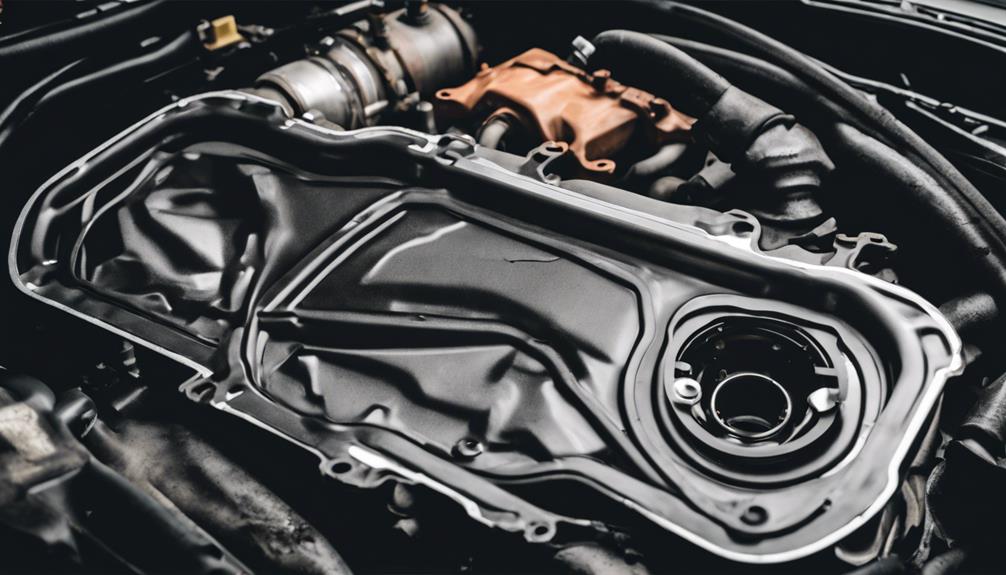
Oil pan gasket leaks on your BMW M4 can be a hassle, causing oil seepage and potential puddles under your car. Keep an eye out for oil spots where you park your vehicle as this could be a sign of a leak.
In case of a leak, repairing the gasket promptly by replacing it can prevent further oil leakage and potential engine damage.
Causes of Leaks
With its essential role in maintaining the integrity of the engine's oil system, the oil pan gasket in BMW M4 models serves as a critical component susceptible to leaks over time. Oil pan gasket leaks can occur due to the gasket deteriorating from constant exposure to heat cycles and engine vibrations.
The continuous expansion and contraction of metal components in the engine can also contribute to the degradation of the gasket's sealing properties, leading to oil leaks. Additionally, improper installation of the gasket during previous repairs or maintenance work can result in leaks.
Regular inspections and timely replacement of the oil pan gasket can help prevent oil leaks, ensuring the engine operates smoothly and efficiently.
Signs to Watch
If you notice oil spots under your BMW M4 and detect a burning oil smell, these could be early signs of oil pan gasket leaks that require urgent attention to prevent further engine damage and maintain peak performance. Addressing these symptoms promptly is vital to prevent oil seepage and potential drips onto the ground. Check for low oil levels and keep an eye out for any unusual smells or spots under your vehicle. Regular inspection of the oil pan gasket is essential to catch leaks early. Here's a table to highlight the signs you should watch for:
| Signs of Oil Pan Gasket Leaks |
|---|
| Oil spots under the car |
| Low oil levels |
| Burning oil smell |
Repair Options
Considering the complexity of addressing oil pan gasket leaks in BMW M4 vehicles, professional repair services are strongly recommended to guarantee thorough inspection and effective sealing to prevent future issues. Repairing oil pan gasket leaks involves a detailed process of removing the subframe and replacing the gasket, which demands expertise and precision.
Symptoms like oil spots under the car, low oil levels, or a burning oil smell indicate a potential leak that needs immediate attention. Timely repair can also prevent oil from leaking onto the exhaust system, reducing the risk of fire hazards.
Opting for professional repair options ensures that the oil pan gasket leaks are adequately addressed, minimizing the chances of recurring issues and maintaining the performance of your BMW M4.
Oil Filter Housing Gasket Leaks
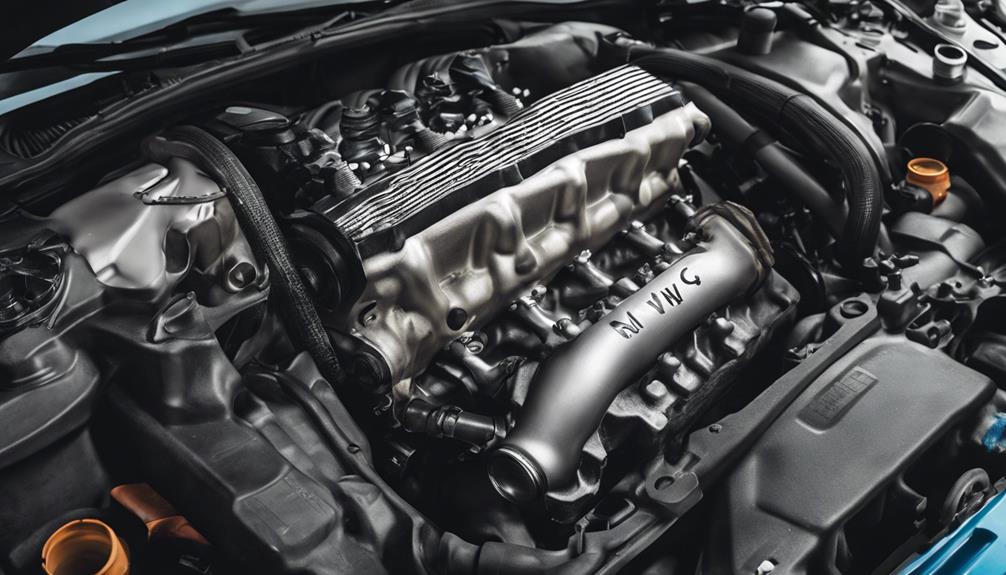
Oil filter housing gasket leaks in BMW M4 models, like the F82, are a common issue that demands immediate attention to prevent possible engine damage. These leaks can lead to oil seepage, resulting in a decrease in oil levels and, if ignored, may cause significant harm to the engine. You may observe oil drips or puddles beneath your car, accompanied by a noticeable burning oil smell, which are typical symptoms of this issue. It's important to address these leaks promptly to avoid more extensive damage.
Repairing oil filter housing gasket leaks typically involves replacing the gasket to prevent further oil leaks. Regular inspections and preventative maintenance play a critical role in early detection of these leaks, helping you mitigate any potential risks to your BMW M4's engine. By staying proactive and addressing oil filter housing gasket leaks promptly, you can safeguard your vehicle's performance and longevity.
Turbocharger Inlet Seal Problems
Experiencing reduced power or increased oil consumption in your BMW M4 could indicate potential turbocharger inlet seal problems, which may compromise engine performance and turbo efficiency. Faulty turbocharger inlet seals can lead to oil leaks and decreased turbo effectiveness, impacting overall driving experience. Addressing these issues promptly is important to prevent further engine damage and costly repairs. Symptoms such as decreased power, heightened oil consumption, and visible oil leaks are common indicators of turbocharger inlet seal problems in BMW M4 models. Regular maintenance and inspections play a significant role in detecting these issues early on, ensuring ideal turbo performance and prolonging the life of your vehicle.
| Turbocharger Inlet Seal Problems | Symptoms | Importance |
|---|---|---|
| Reduced power | Increased oil consumption | Early detection is key |
| Oil leaks | Decreased turbo efficiency | Prompt attention required |
| Poor engine performance | Visible oil leaks | Prevent further damage |
O2 Sensor Malfunctions
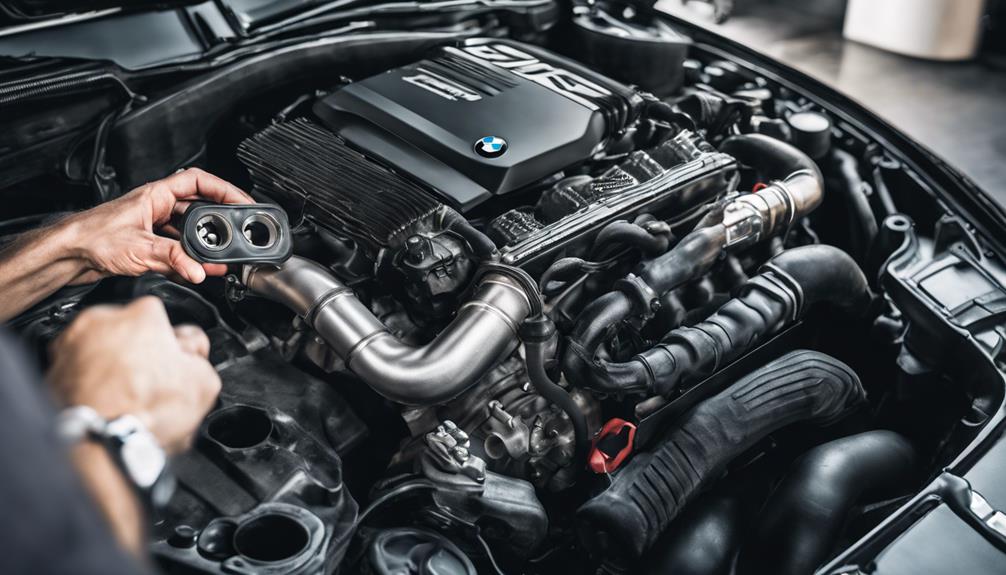
Malfunctions in the O2 sensors of BMW M4s can result from sensor degradation over time, potentially leading to issues with fuel economy and exhaust emissions. When O2 sensors fail, they can cause the engine to run inefficiently, triggering the check engine light and impacting overall performance.
Poor fuel economy and increased emissions are common symptoms of faulty O2 sensors in BMW M4s. Regular maintenance checks are vital to prevent O2 sensor malfunctions. If you notice a decrease in fuel efficiency or experience a rough idle, it might be time to have your O2 sensors inspected.
Promptly replacing malfunctioning O2 sensors can restore proper engine performance and efficiency in your BMW M4. By addressing O2 sensor issues proactively, you can guarantee that your vehicle runs smoothly and meets emissions standards, enhancing your driving experience and the longevity of your BMW M4.
Misfires
Misfires in BMW M4 models can stem from various issues such as faulty ignition coils, spark plugs, fuel injectors, or carbon buildup. These problems can lead to symptoms like rough idling, engine hesitation, loss of power, and potential activation of the check engine light. To pinpoint the exact cause of misfires, diagnostic tools like OBD scanners are essential in identifying the specific cylinder(s) experiencing issues for targeted repairs. Regular maintenance practices such as replacing spark plugs and ignition coils can aid in preventing misfires in BMW M4 engines. Addressing misfires promptly is important to avoid potential damage to components like the catalytic converter.
| Common Causes of Misfires | Symptoms |
|---|---|
| Faulty ignition coils | Rough idling |
| Worn-out spark plugs | Engine hesitation |
| Clogged fuel injectors | Loss of power |
Analyzing misfire issues promptly and accurately is important in maintaining the best performance of your BMW M4.
Common Problems Summary

Common issues frequently encountered in BMW M4 models encompass a range of mechanical and component-related concerns.
Some common problems include:
- Crank hub issues
- Valve cover and gasket leaks
- Oil pan gasket leaks
- Turbocharger inlet seals
- O2 sensor issues
- Misfires
The BMW M4 is known for potential oil-related leaks and sensor failures, which may necessitate prompt attention to prevent further damage. Ignoring issues like crank hub problems can result in costly repairs down the line, underscoring the importance of regular maintenance and inspections.
Frequently Asked Questions
How Reliable Is an M4 Bmw?
The BMW M4 is a solid choice when it comes to reliability, falling mid-way in surveys. It outperforms the 3 and 4 Series models and offers enthusiasts a better-than-average ownership experience. You can trust its track record.
What Is the Life Expectancy of a BMW M4?
With proper care and maintenance, your BMW M4 can last well beyond 100,000 miles. Regular servicing and addressing issues promptly are crucial. The S55 engine's durability guarantees reliable performance. Factors like driving habits and maintenance history influence longevity.
Is the M4 a Good Car?
Yes, the M4 is a great car, offering exceptional performance, dynamic driving experience, and striking design. You'll enjoy its powerful engine, precise handling, and overall thrill behind the wheel. It's a solid choice for driving enthusiasts.
Can a BMW M4 Be a Daily?
Yes, a BMW M4 can be a practical daily driver. Its balance of performance and comfort, coupled with routine maintenance, guarantees an enjoyable commute. Fuel efficiency varies but provides decent mileage. Enjoy the power and handling!
Conclusion
To sum up, the BMW M4 may have some typical issues that owners should be mindful of.
From crank hub problems to valve cover leaks and turbocharger seal issues, these issues can potentially lead to costly repairs if not addressed promptly.
It's crucial for M4 owners to stay vigilant and proactive in maintaining their vehicle to guarantee peak performance and longevity.
Remember to address these common problems promptly to keep your BMW M4 running smoothly.






